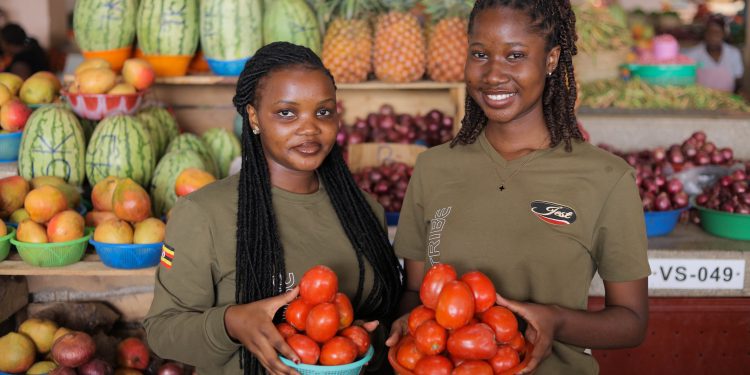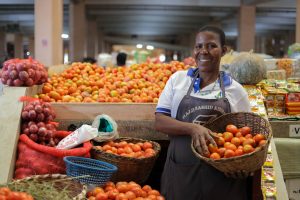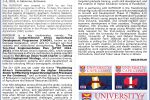A Start-up’s Journey to Unlocking the Full Potential of Tomatoes

In the heart of Kampala, Busega Market thrives as a vibrant hub of Ugandan culture and commerce, bustling with various entrepreneurs. Among them are Jackline and Esther – a dynamic young duo who founded Success Tribe to address post-harvest losses by transforming surplus vegetables from the market into value-added products.
The motivation behind this initiative stemmed from the alarming tomato wastage in Busega Market caused by mishandling during transportation and spoilage due to poor storage facilities, where vendors faced preventable financial losses. Success Tribe transforms over 3.2 tons of excess tomatoes that would otherwise go to waste into an array of products such as tomato sauce, barbecue sauce, tomato ketchup, tomato jam, appetizer sauce and chili sauce. The duo saw an opportunity to bridge the gap between farmers, vendors, and processors by creating this sustainable model that ensures better income for the supply chain stakeholders while reducing food waste.
Struggling to meet her tuition requirements, Jackline received a scholarship through a recommendation from Makerere University’s College of Agricultural and Environmental Sciences, where she is currently in her final year studying Bio-processing Engineering. This scholarship not only allowed her to continue her education but also introduced her to various initiatives aimed at supporting youth in agribusiness and innovation. Her passion for agriculture deepened when she joined the TAGDev programme, which motivated her to delve into agri-entrepreneurship, reinforcing her belief in the power of innovation to transform the agricultural sector.

Growing up, Jackline witnessed first-hand the difficulties encountered by small-scale farmers, particularly the devastating post-harvest losses caused by market fluctuations and insufficient storage facilities. This early exposure fuelled her desire to study Bio-processing Engineering which opened her up to innovative ways of transforming raw agricultural produce into high-value products as well as solutions that improve food preservation, and create sustainable livelihoods for local communities.
With a solid foundation in Bio-processing Engineering, research on post-harvest handling, microbial stability, and food preservation methods, as well as exposure to quality assurance, sustainable energy systems, and bio-separation techniques, have all helped to maximize and improve the shelf life and quality of Success Tribe’s products. Feasibility studies also had an impact on the enterprise, helping the partners identify market needs and refine their business strategy.

Like any other business, Success Tribe is not without challenges. Their products are yet to be certified by the Uganda National Bureau of Standards (UNBS), which limits their access to larger retail markets. Additionally, manual processing affects efficiency and consistency, which can lead to variability in the quality of their products. The duo has identified the need for a pulper finisher and pasteurizer to improve production capacity. Furthermore, their processing facility is small, limiting scalability, which hinder their ability to meet the growing demand.
While navigating these challenges, the enterprise continues to build on its notable accomplishments, such as creating 70 job opportunities across the tomato value chain and providing over 35 families with reliable income to sustain their livelihoods. The enterprise also intends to replicate its innovation model to other open markets grappling with post-harvest losses to expand its promising solutions to food insecurity and environmental awareness.
Success Tribe’s story proves that supporting youth-driven initiatives can reshape agribusinesses, defy traditional constraints, and contribute to resilient agri-food systems.






